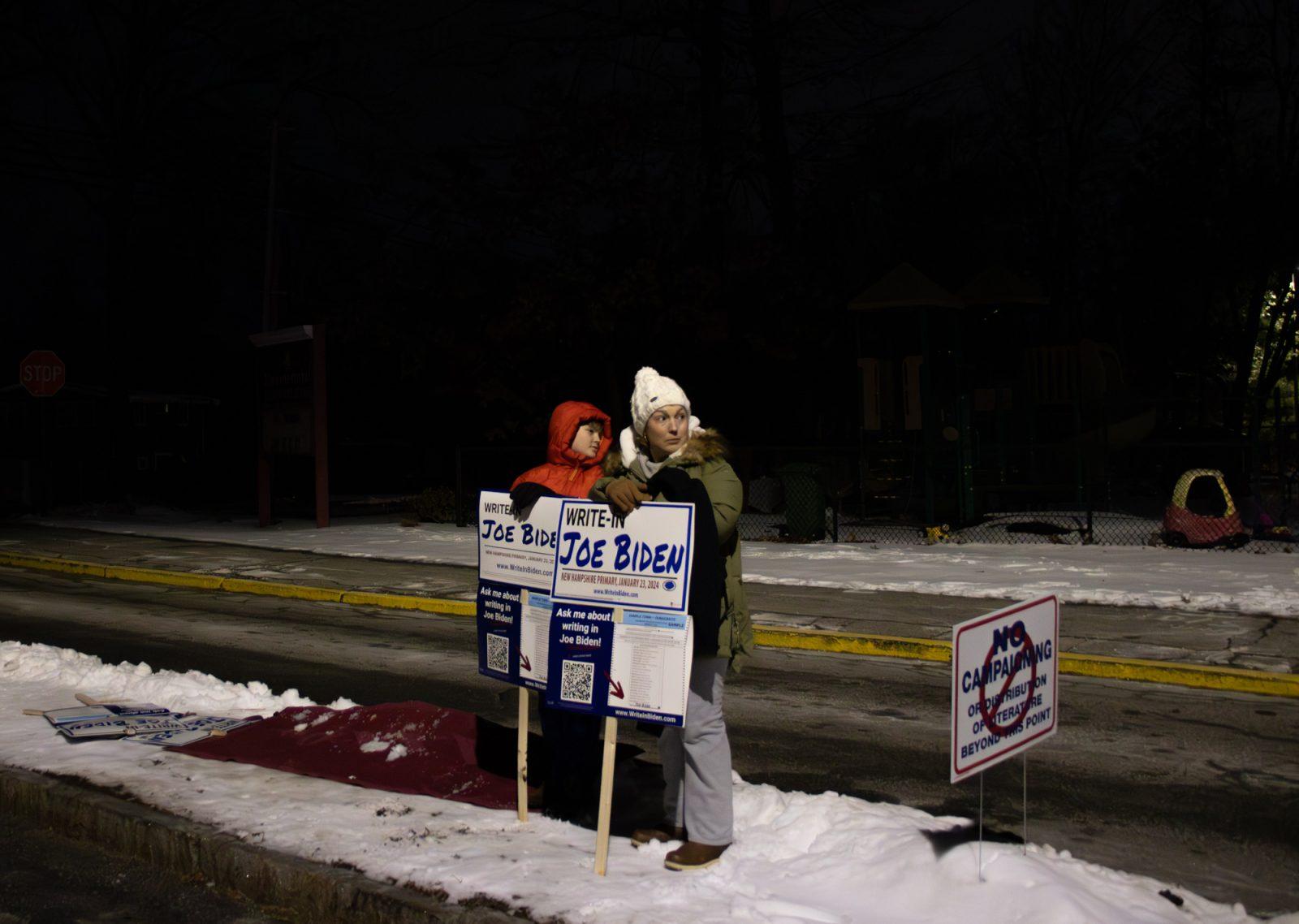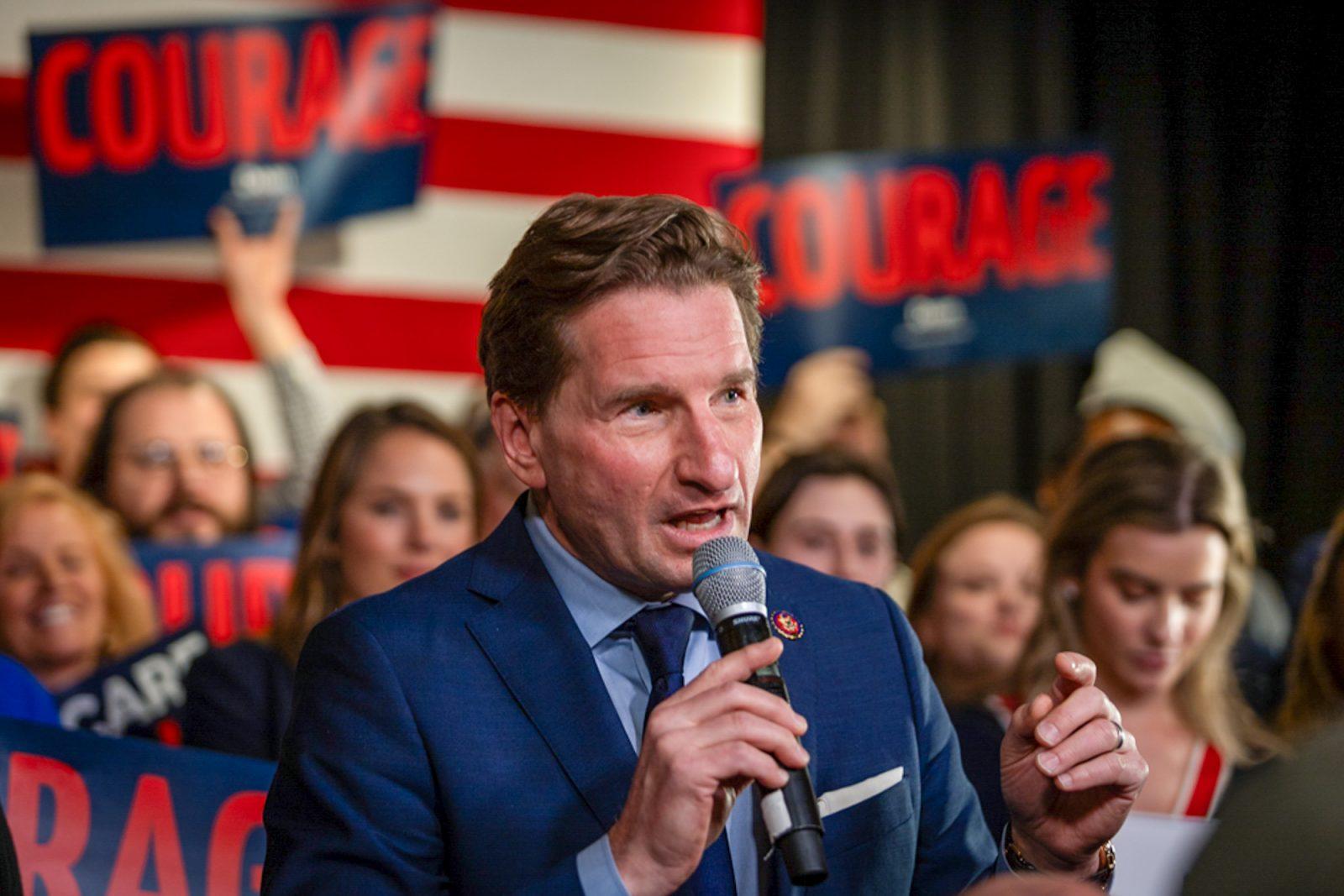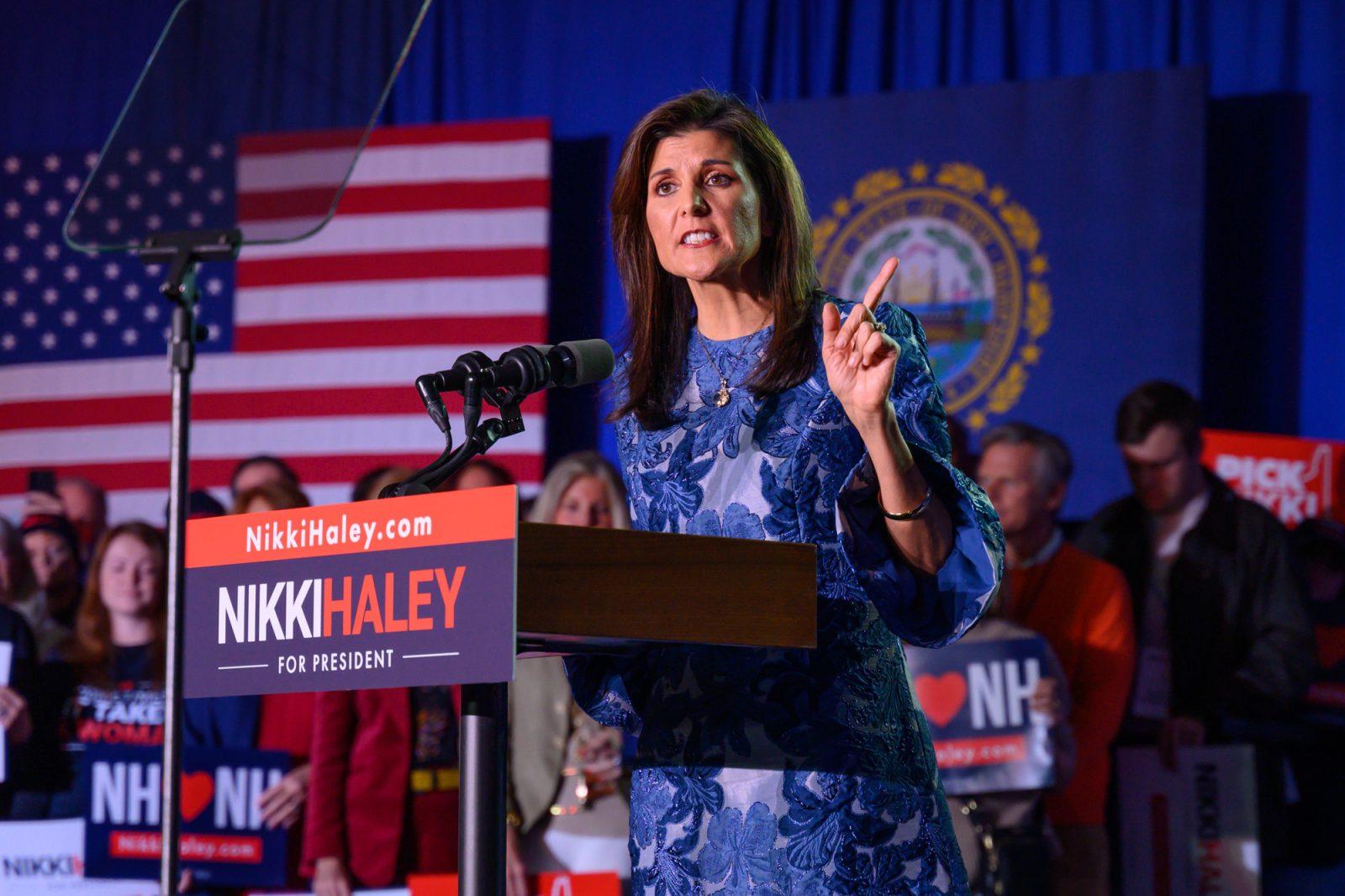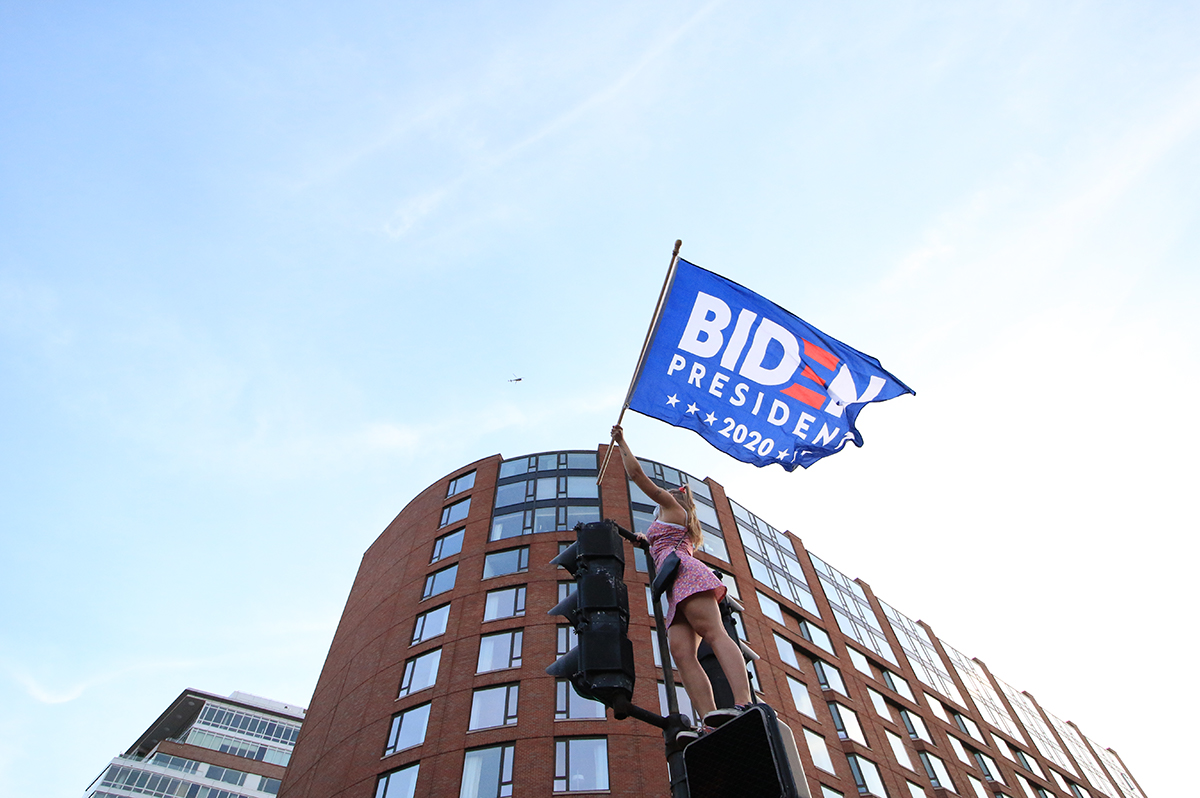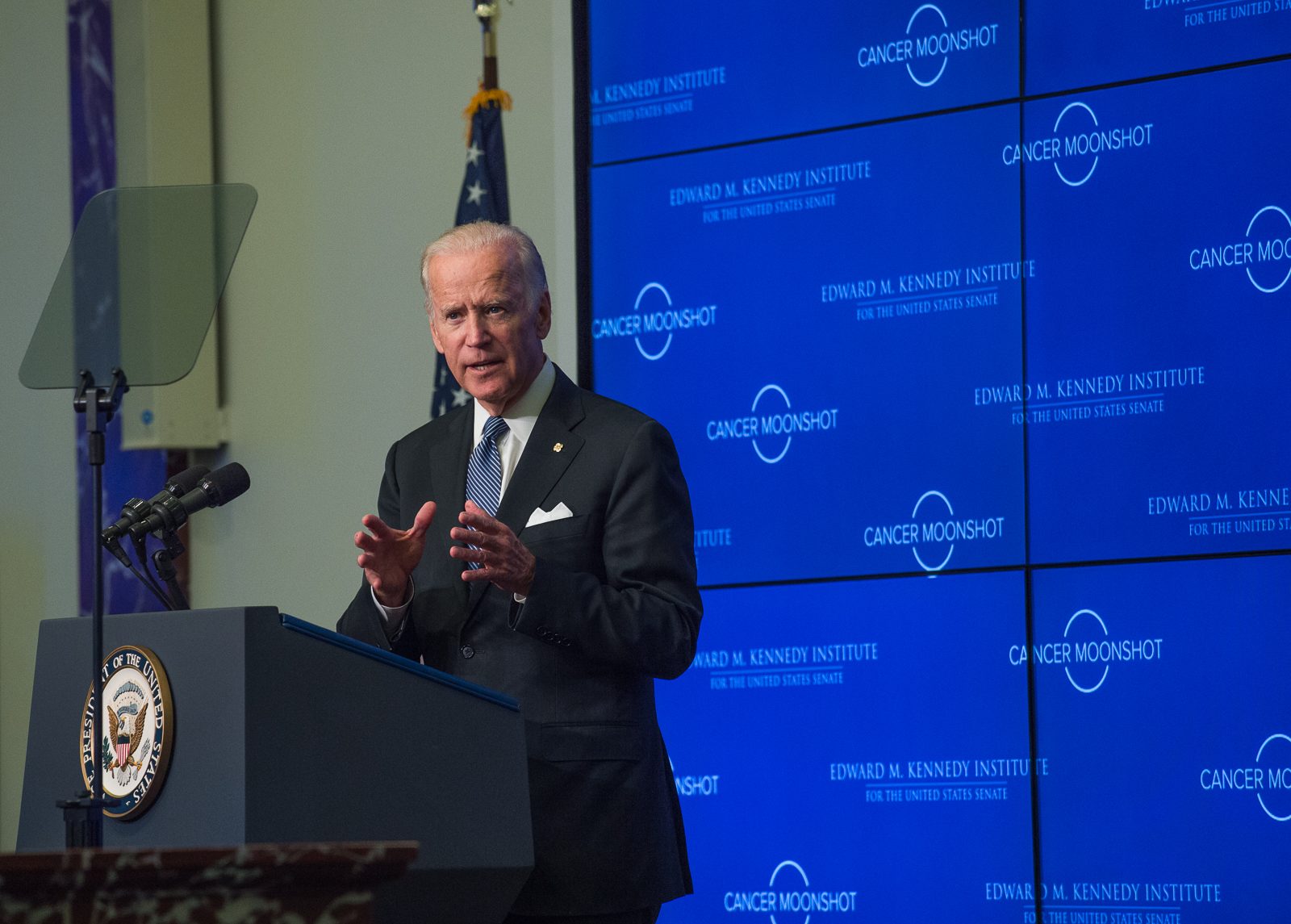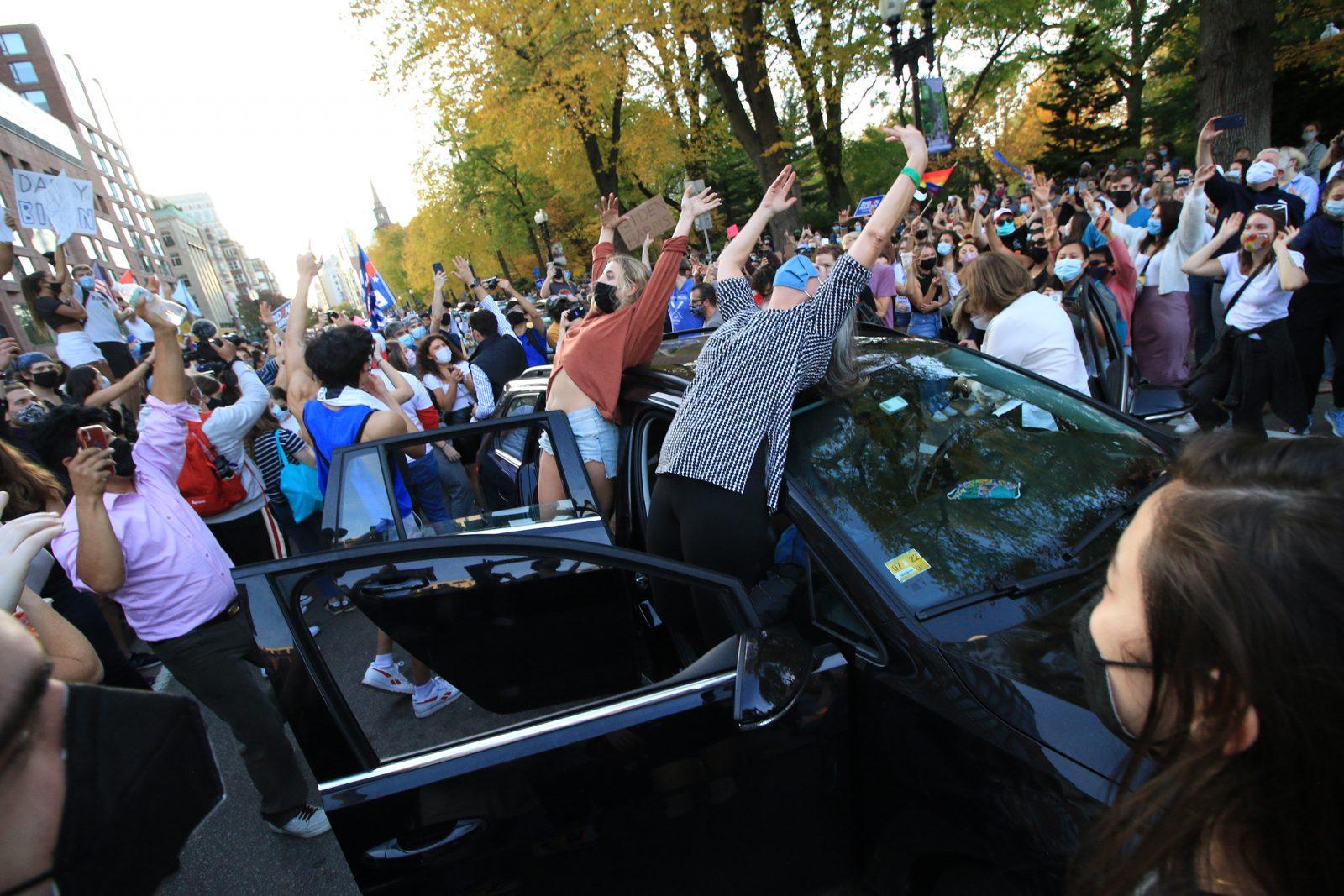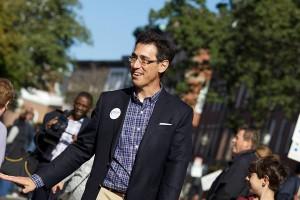
This is the first part in a five-part series of profiles about the gubernatorial candidates facing off in the Nov. 4 election.
Attorney and entrepreneur Evan Falchuk is one of three unenrolled candidates vying for the gubernatorial office. Running as a candidate from the United Independent Party, a political party he launched in January 2013, Falchuk hopes to represent the group’s values of equality, civil rights and efficient use of taxpayer money.
Raised in Newton, where he now lives with his wife and three kids, Falchuk wants his campaign to engage voters and inspire a movement of independent candidates to run for office. With his campaign slogan focused on “smart, brave reform,” Falchuk says his ability to take a strong stance on positions and offer answers sets him apart from his opponents.
Sitting in his office on Tremont Street, Falchuk spoke to the Daily Free Press about campaign goals, flaws with the two-party system and his passion for political engagement.
FG: You grew up in Massachusetts, and you ended up back here, running for governor. What brought you back to the Commonwealth and inspired you to get into politics?
I’m a person that needs to feel passionate about something that I’m doing and that I’m building things. It’s very hard to, in the course of your career, figure those things out about yourself. It’s one of the most difficult things that I think people in college especially deal with. You’re going through high school and there’s the expectation that you’re going to college, and then you’re in college and there’s the expectation that you’re going to get a job in the thing you decided to major in, but you’re like 19 when you made this decision, and the next thing you know, your life is upon you, and you’re like ‘Well, what matters to me?’
…So my challenge with being a lawyer was I was really interested in it…the work was hard and challenging. But I didn’t feel passionate about it at the end of the day, and that can really drive you…you’re working that hard and you’re not feeling it…you have to, have to, have to love it… So that’s what that was like for me professionally…I’ve always been someone who’s interested in politics, but not thinking ‘Oh, I want to go and run for something,’ but you start to watch what’s been happening in our country over the last decade or so, and it’s become devoid of substance. It’s about power and wanting to hold that power, but not about engaging voters in a real and meaningful way about real issues. So you watch all the vague platitudes about every single issue, and as a voter, it ticks you off after awhile. This is not good, when you know there are real problems going on and instead of trying to figure out how to deal with them, like adults should do, what we see is left and right, arguments that we’ve been having in this country for 30 or 40 years…
I met a voter in a town South of Boston. It was a Fourth of July parade. And in parades, I like to go meet as many people as a I can, build some kind of relationship, even in a short period of time. I like to be able to show people respect, that I’m here and I’d just like to introduce myself. And I say to this guy, ‘Hey, I’m Evan Falchuk. I’m running as an independent for governor. Happy Independence Day.’ And this guy, wearing an American flag shirt, as I reached out to him, crosses his arm and shakes his head and is like, ‘No, I vote straight up and down for one of the parties.’ And I said, ‘You could still wish me a happy Independence Day.’ And he shakes his head and said, ‘I don’t shake hands with the enemy.’ Now, I have met people like him many times across the state, and I’ve been running for over a year. He is not in the majority by any stretch of the imagination, but I’ve got to tell you something – that guy votes, and I bet you he votes every single time. He probably sits on the committees of the party he’s in. And if you’re a candidate and you want to figure out your way to climb through that, you’ve got to impress him and make him feel good about what’s going on. And you can only imagine the type of things that’s going to impress a guy that thinks another American who is not in the same party as him is his enemy…
That’s what got me motivated. I look and I say ‘I am a voter, and what am I supposed to do about this?’ I can sit back and say it stinks and not participate, but at a certain point, you’re like, ‘Well, we all have a responsibility to do something about the things that are going on in our country.’ And there so many layers of which this stuff gets really really bad. And I got kids. In each generation, we have a responsibility to make sure things are better than they were before, not worse. And unfortunately, the world that we are in right now is one that is not as good as it once was. It’s better in a lot of ways, but there are a lot of ways in which it’s heading in a bad direction, and we’ve got a responsibility to change it.
FG: At what point did you realize you didn’t associate with the left or right and decide a third party would be best for you?
EF: Like a lot of people, I probably realized I didn’t fit into the boxes of Democrat or Republican at some point over the past 10, 15, 20 years. In Massachusetts now, more than 53 percent of voters are not enrolled in the Democratic or Republican party. So independent voters are the largest percentage of voters in the state, and in fact, this is the state with the largest percentage of independent voters in the country. That’s amazing…
I’m a person who says I believe everyone is equal, so maybe I belong in one party because of that. Everyone’s civil rights have to be protected, so maybe I belong in one party. And I think the government’s got to spend taxpayer money wisely, so now maybe I’m in a different party…so what do I do?…So I said ‘Why can’t we create a new party? A structure, a framework, to get lots of new independent candidates on the ballot? Why can’t we do that?’ And you look on it in retrospect, and you say it’s really obvious that someone should do that, but at the time, it’s this new idea…it’s interesting…a party for people who aren’t in a party…because the independent voter is the majority of voters, and the independent voter has a diverse set of views.
FG: Did you know you wanted to run for office when you first launched the United Independent Party?
EF: Yeah because the only way you make real political change is by having political influence, but real, meaningful change, and that can only happen by people running for office. And it has to be about much more than just one person. Yes, I’m running for governor. Yes, I funded this party. Yes, we are working every day to win the election, and I can see how we will do that. But it has to be about more than me. That’s why we have this party structure…Personal goal: minimum, we want to make sure we become an official party, which really matters. All you’ve got to do is get 3 percent of the vote in a statewide election to become an official party, which is a huge deal because there are different rules for ballot access. There are different rules for funding…My personal goals: 3 percent and winning. And then it becomes about how we build for the future because my next goal is 2016. How do we start to fill that legislature with people who think about these things in the way that I’m talking about?
FG: When you go to your website, the slogan says “smart, brave reform.” What do those words mean to you? And why are the actions and goals of the Democratic and Republican candidates not smart and brave?
EF: Here’s what brave means in politics in 2014: taking a position…The way the political process works today is it rewards you for talking that way [in a way that pleases everyone]. I don’t have a primary, and the position I’m taking…I’m just describing rationally and logically what I think. You can disagree with me. I’ve been on conservative radio shows…and at the end of it, they might say, ‘I completely disagree with you,’ but they don’t have a question about where I stand. I’m not couching it in terms of ‘I’m a good person, and you’re a bad person.” I’m just talking about it in practical terms, which is what we should be looking for…These are serious problems we’re dealing with, and if you don’t have the moxy to take an opinion when it’s high school kids asking you a question, what’s it going to be like when you have a bunch of legislators saying ‘Why do you support this?’
FG: Now, one of your opponents who you’ve mentioned, Coakley, could come back and respond to that statement by saying she is running for the entire Commonwealth and she’s just trying to find a common ground. Would you say that’s not the way you should run?
EF: I would say that you’re interviewing for a job. And this is a big job with important responsibilities. And as a businessperson, I’m interviewing you, and let’s say I want you to be our head of public relations…do you believe we should be doing direct mail campaigns to reporters in order to get stories written about this company? And if you say, well…I’m willing to look at what other companies have done with direct mail solicitations, and I’ve said before I’m against them, but I do understand the need…now, I’m sitting here looking at you, and I’m saying ‘Dude, I’m asking you.’ In any situation in your life, would you give an answer like that to somebody? And that’s the problem – in politics, our standards have become so low that we can hear that and you can just come up with something [on our own].
FG: What are the biggest flaws today in the two party system?
EF: The parties themselves are not representative of people. The parties themselves are not interested in changing, other than what it takes to keep a grip onto their power and authority, so that’s why the issues they end up dealing with change with the political winds…You cannot change those parties from within. It can only happen by someone from the outside disrupting the system.
FG: When it comes to the ballot question about repealing the state casino law, where do you fall on that?
EF: I’m voting against that, and against the repeal means it gets to stay. The legislature voted in 2011 to create a framework, which allowed the cities and towns to decide if they wanted casinos in their cities and towns, and then the cities and towns voted. And there were a lot of hard-fought battles in the cities and towns on these issues, and we had two places that said they want casinos. We had a number of places that said they did not. So planning has been preceding on that basis, and now we’re trying to upend that on this ballot initiative…This is no way to do business, and this is no way to operate a democracy. And it’s everything that’s wrong. We had the debate, we discussed this, we voted and now, we have to be able to move on. And that’s it.
FG: Where do you stand on gun laws? Are there additions you want to make to make the Commonwealth safer?
EF: If the problem we’re trying to deal with is gun violence, which is why you see all the movement on these gun laws…Here’s the thing. You’ve got a Second Amendment right to own a gun in this country. The government can also regulate it…We live in a country where there are guns and there are a lot of them, and there are a lot of people who own guns. And the overwhelming majority of those law-abiding gun owners aren’t using those guns for any bad purpose…the problem that we have is the people who are using these weapons illegally…[But] you could make every single person in Massachusetts have a lock on their lawfully-owned gun, and you’re not going to stop the illegal gun use and crime. So what is the solution to the problem? Look, there are always things we could do with gun laws, but at the end of the day, we have to get to the root causes of why violence happens and address it. We need gun laws, and I’m not in any way saying we should reduce or limit them…but let’s be real. Let’s get to the underlying causes.
FG: You and your running mate, Angus Jennings, created the Falchuk-Jennings Thriving Communities Action Plan. Can you just explain a little about what it will do and how it will fix the housing market?
EF: What is inherent in that plan is that every city and town looks at the concept of planning and says ‘It’s in my financial best interest to see lots of new homes built in my community.’…You lower people’s costs of living and you get more young people living here with more money in their pockets, they start businesses, they do all kinds of things and there’s new economic activity. We have no housing production plan in Massachusetts. So that thriving plan is all about jobs and economic growth…When I say “smart, brave,” what I mean is that we’re laying it out there.
FG: Education is a big issue across the board in the gubernatorial race. You talk about your Action to Honors Plan on your website. What makes that different than what other candidates are proposing?
EF: What we propose here is that I know there’s not enough money going to the schools…we lose the ability to actually have a holistic sense of what it means to educate a kid. I think kids should graduate from school with critical thinking skills and creativity and determination and grit. We have to make sure the money’s there for starters, so the action part is filling that gap right now…this is the opportunity. This is our future we’re investing in with kids…And then over the long term, say ‘What does it look like 20 years from now?’ And for me, good planning does that. So this is a time after all of us are out of office, so forget about the politics of it because it’s 20 years from now. And then you can work backwards and say how does it look?
FG: What makes you the candidate to beat?
EF: Most voters say they want independent leadership, so here’s the question: will they vote? They’ve got to vote. That’s the bottom line. People say ‘I want a viable independent candidate. I want someone who’s not fringe. I want someone who’s actually accomplished something. I want someone who believes, somebody who’s going to level with me on stuff.’ Well, I’m here. I’m laying it out for you. So, vote. If you vote, it’ll happen. If you don’t vote, you’re going to be stuck with the same problems again.






















































































































